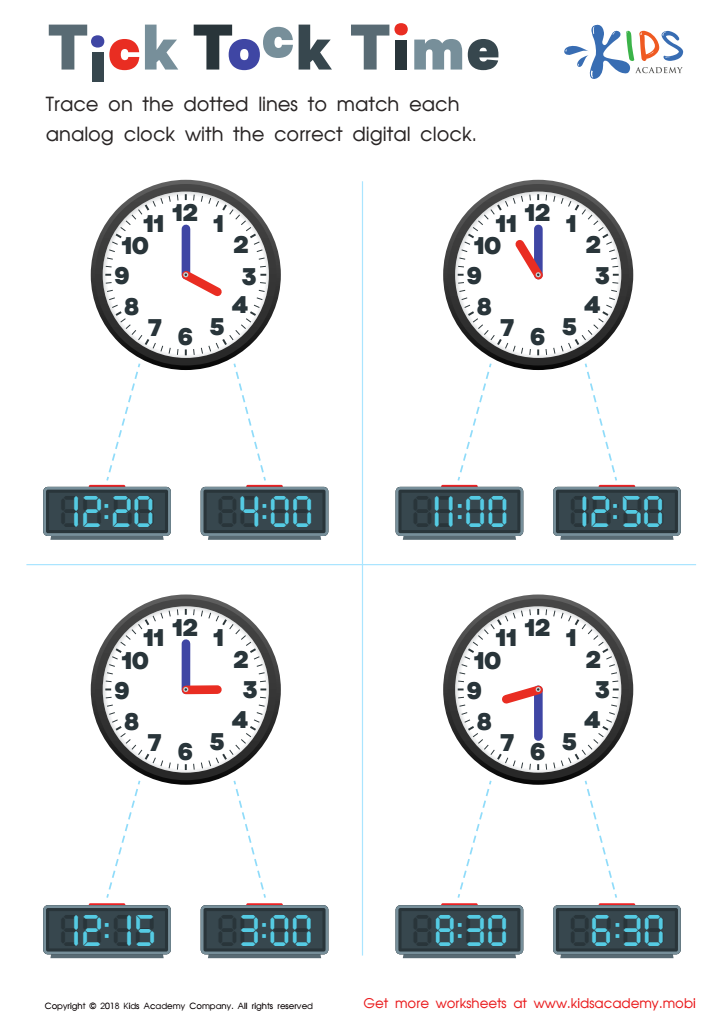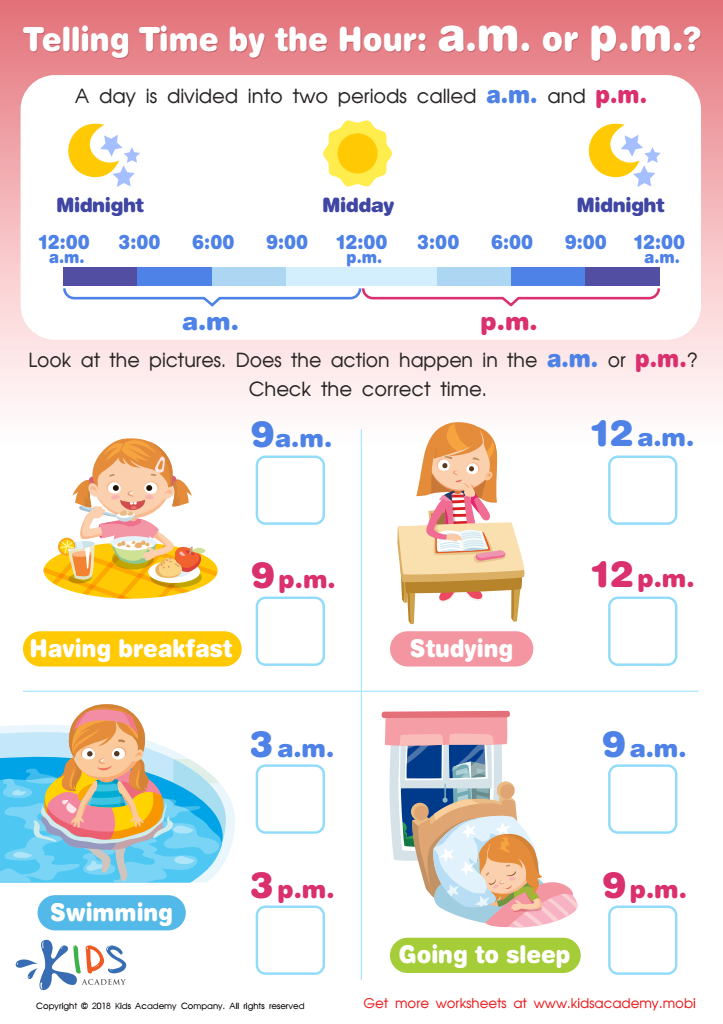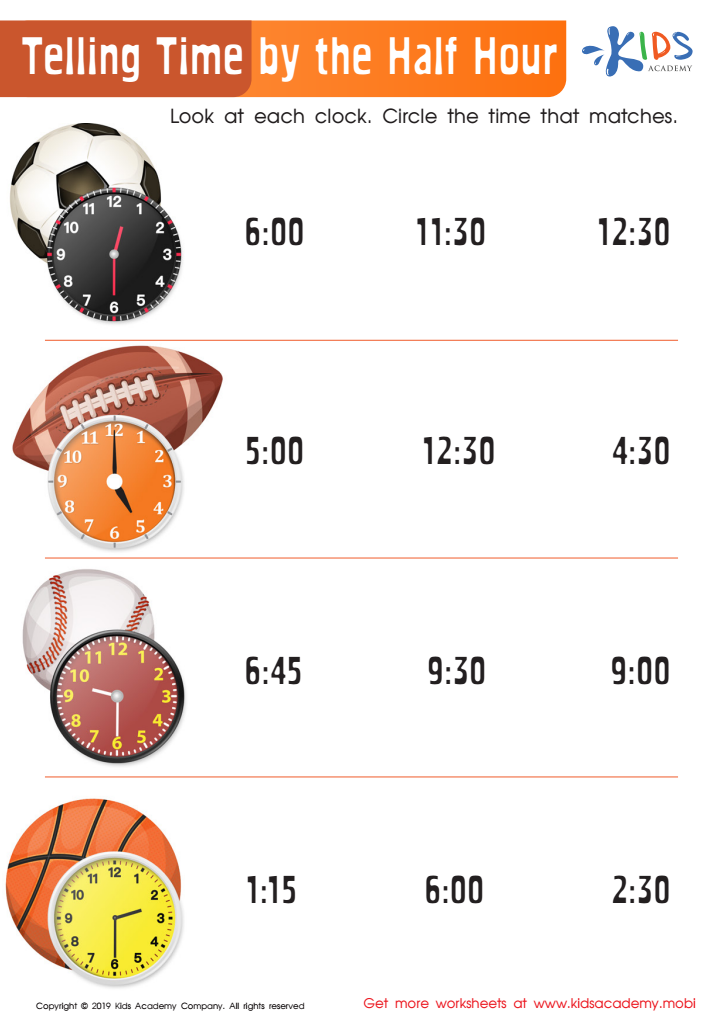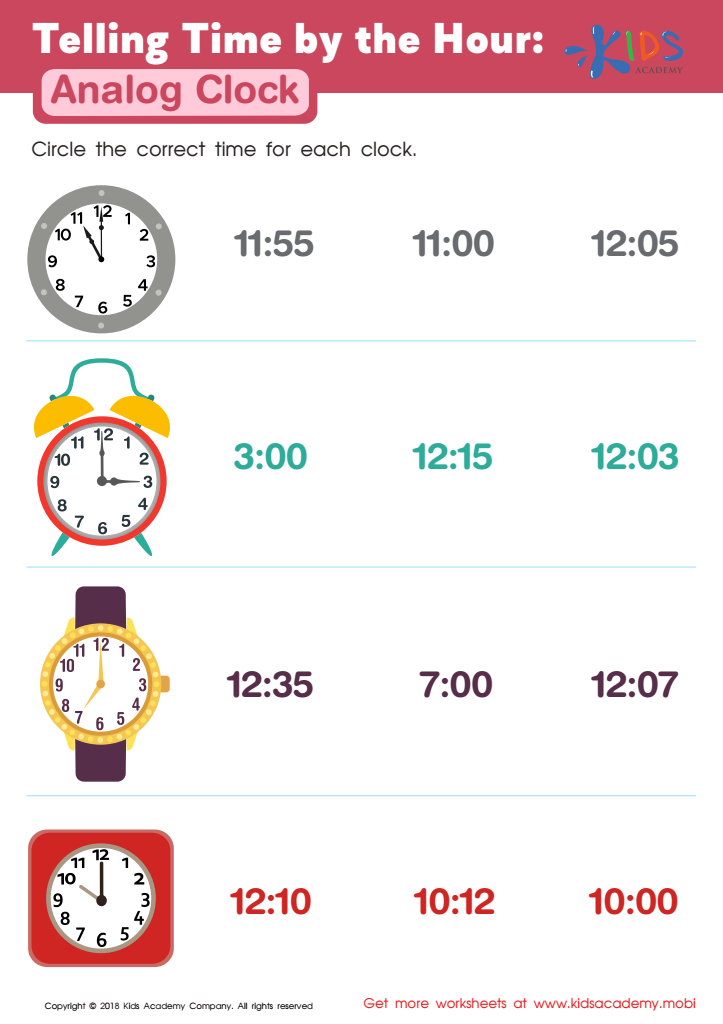Normal Time Worksheets for Ages 3-6
5 filtered results
-
From - To
Introduce your little learners to the concept of time with our engaging Normal Time Worksheets for ages 3-6. Designed to make learning fun, these worksheets help children understand hours and minutes through colorful examples and interactive activities. From practicing clock reading to sorting daily routines, each exercise builds a strong foundation in time-telling skills. Perfect for preschoolers and kindergarteners, these printable worksheets support early math development while enhancing cognitive abilities. Make time-telling an exciting adventure with Kids Academy – where education meets creativity and playful learning transforms into lifelong skills. Explore our selection and watch your child's confidence soar!


Years Worksheet


Tick Tock Time Worksheet


Tilling Time by the Hour: a.m. or p.m.? Worksheet


Telling Time by the Half Hour Worksheet


Telling Time by the Hour: Analog Clock Worksheet
Normal playtime, often referred to as free play, is incredibly beneficial for children, especially those aged 3 to 6. Play isn't just about fun; it's a crucial aspect of early development. When children engage in normal playtime, they develop essential motor skills as they run, jump, and play physically. These activities contribute to their overall health, fostering gross motor and fine motor skills.
But the benefits go beyond physical development. During playtime, children's cognitive abilities are put to the test. They experiment with their environments, which can enhance problem-solving abilities and critical thinking. For instance, building with blocks can teach them about balance and spatial relationships. Free play also fosters creativity and imagination, enabling children to visualize possibilities and scenarios, which is fundamental for cognitive flexibility.
Furthermore, social skills blossom during play. Children learn to negotiate, share, take turns, and resolve conflicts when they play with peers. These interactions are foundational for understanding social norms and developing empathy. Playtime even has emotional benefits, offering children a joyful outlet to express their feelings and reduce stress.
In summary, normal playtime is vital for young children’s growth. It nurtures physical health, boosts cognitive and social skills, and supports emotional wellbeing. Hence, parents and teachers should prioritize and encourage daily play as a cornerstone of early childhood development.

 Assign to My Students
Assign to My Students









%20(1).jpg)










